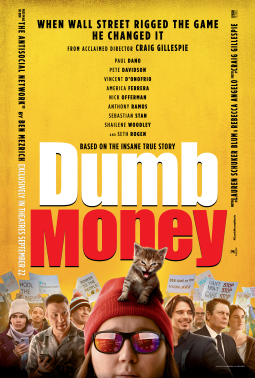Sahara
Posted on February 24, 2005 at 4:46 am
B-| Lowest Recommended Age: | Middle School |
| Profanity: | Mild language |
| Nudity/ Sex: | None |
| Alcohol/ Drugs: | Smoking, social drinking |
| Violence/ Scariness: | Comic book-style peril and action violence |
| Diversity Issues: | Dated portrayals of women and minorities |
| Date Released to Theaters: | 2005 |
“Sahara,” based on one of Clive Cussler’s series of novels about dashing adventurer Dirk Pitt feels more like a 1940’s serial than a book written in 1991 or a movie made in 2005. The characters are too thin, the violence too careless, the suspension of disbelief required too strenuous, the treatment of non-whites too stereotyped. All of that keeps getting in the way of some terrifically exciting stunts and some spirited action.
Matthew McConaughey plays Dirk, a former Navy SEAL with a wisecracking best pal (wisecracker extraordinaire Steve Zahn as Al Giordano). They work for steely-eyed former Admiral Sandecker (William H. Macy), seeking sunken treasure, rescuing beautiful doctors, expediting regime change and otherwise causing headaches and saving days. We know they must be cool because they are irreverent and play rock music very loud and know all kinds of clever Navy SEAL maneuvers. And because everyone else is just too corrupt or incompetent or blind to get things done.
There are two treasure hunts — a beautiful woman is hunting a microbe and a handsome explorer is hunting for a ship lost more than 100 years ago.
The beautiful doctor is Eva Rojas (Penelope Cruz) of the World Health Organization. She is an epidemiologist seeking the source of a mysterious disease that is killing people quickly. No one takes her seriously except for her dedicated colleague (Glynn Turman) and a mysterious turbaned man who is stalking her.
The second treasure hunt is for a Confederate Civil War ship that Dirk thinks made it all the way to Africa as the Confederacy was falling and is now buried in a desert. Yes, I said desert.
In the middle of all this is corrupt French industrialist Yves (Lambert Wilson). For some reason they make a point of mentioning that his name is pronounced just like the doctor’s, but then they start calling her AY-va instead of EEV-a for no particular reason.
But come on, this is a movie about a guy whose name is trademarked by the author. This is a movie that asks us to believe that a ship is in a desert and Penelope Cruz is a neurologist. (She must be from the same medical school/casting agent that gave us fellow neurologist and fellow Tom Cruise alum Nicole Kidman in Days of Thunder). In other words, this movie is all about the action, and we get plenty, along with one very cool car, a clueless bureaucrat, a bomb about to go off that has to be defused, sprays of bullets that always just miss when aimed at our heroes but are sharpshooter-on-target when fired by them, a fight on the very small top of a tall, tall tower, a big, fat, coincidence or two, and a bad guy who “put the war back in warlord.” And Cruz in a bikini. Now that performance, I do believe.
All of this would be good, All-American, popcorn fun except that as you try to put your brain to sleep to sit back and enjoy the action, two things keep nagging at you. The first is not so bad — okay, the whole thing is preposterous and the characters are thinner than tissue paper, but we can handle that. The careless carnage is more serious. Dirk and Al have no hesitation in blowing away battalions of uniformed troops without any real justification. The African bad guy says that “No one cares about (killing) Africans,” but no one making the movie seems to have got the memo about how that was a bad thing. One saintly African-American doctor does not make up for portraying the Africans as evil, ineffective, or, worst of all, expendable.
Parents should know that the movie has non-stop “action” violence, which means that our intrepid heroes get shot at a lot but never get hit while their own shooting is almost unfailingly on target. Despite the fact that it is based on a book written in the 1990’s and includes some positive black characters and a female doctor, the movie has an unpleasantly retro approach to women and minorities, approaching racism in its casual attitude toward killing Africans.
Families who see this movie can learn more about groundwater contamination issues at this site and about the Navy SEALs here. Cussler has used some of his book royalties to set up a real-life NUMA organization.
Families who enjoy this movie will also enjoy National Treasure and classics like King Solomon’s Mines and Raiders of the Lost Ark.






